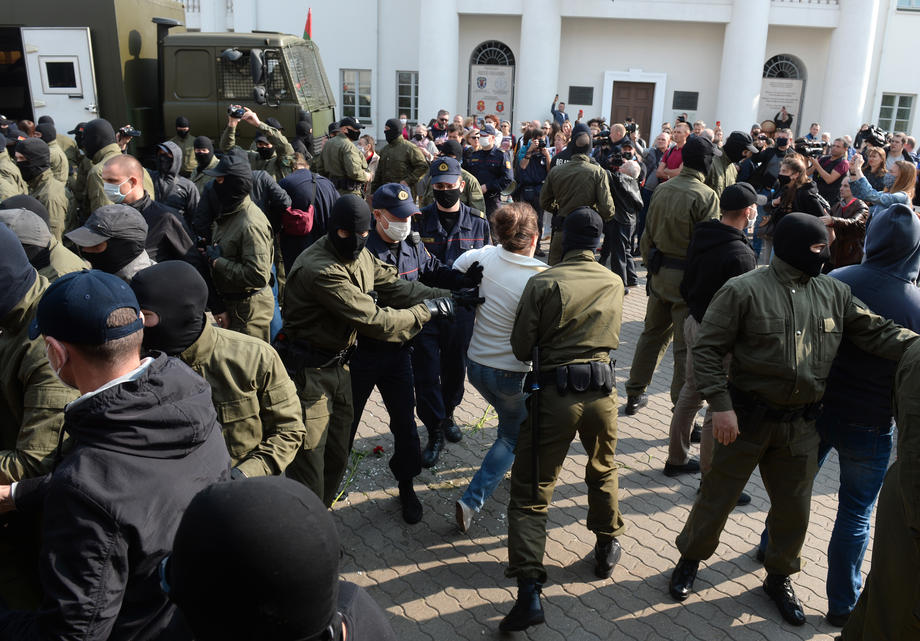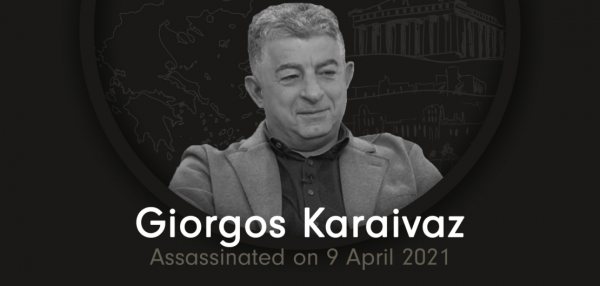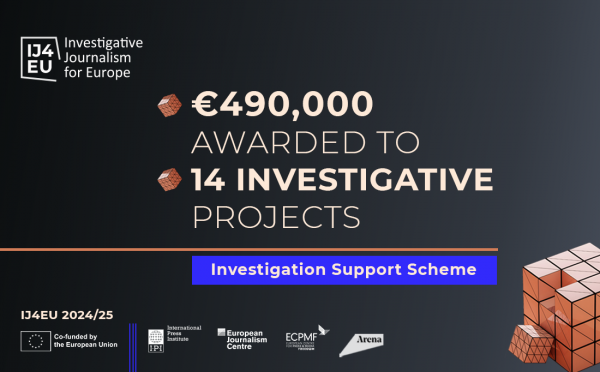The International Press Institute (IPI), a global network of editors, media executives and leading journalists for press freedom, today condemned the latest arrests of journalists and media workers covering ongoing anti-government protests by police in Belarus.
In total, at least 206 journalists have now been detained in the capital Minsk and across the country since protests against a fraudulent election victory of president Alexander Lukashenko erupted on August 9, according to the Belarusian Association of Journalists (BAJ).
As nationwide demonstrations against authoritarian rule enter the seventh week, detentions have continued as riot police and security forces attempt to further silence criticism and suppress international reporting of widespread rights abuses, with 22 detentions since September 12.
While the majority of journalists were detained briefly or have since been released from jail, many remain behind bars convicted of “participating in unauthorized events” or “working without accreditation” in speedy trials, many of which were held behind closed doors.
“The international community should take note of continuing harassment and arrest of journalists in Belarus”, IPI’s Director of Advocacy Ravi R. Prasad said. “Detentions, charges, fines, violence and the wilful destruction of cameras and equipment have become the usual tactics of the law enforcement agencies. It’s time for international community to condemn and sanction the Lukashenko government.”
Recent arrests and detentions
The latest arrests came during Sunday’s rallies in Minsk, when police detained Dzianis Borshch, Siarhei Kazlovich and Nikolai Maminau. Borshch, a correspondent for the Poland-based broadcaster Belsat TV, and Kazlovich, a popular blogger, were accused of participating in unauthorized events and released on Monday September 21. The whereabouts of Maminau, another Belsat correspondent, are currently unknown.
The same day, two other Belsat journalists Alina Skrabunova and Aliaksandr Sidareuski were detained while reporting on protests in the eastern city of Mogilev. Both have since been released. A protocol was drawn up against them for violating the legislation on mass media, another tactic often deployed by police for targeting critical journalists.
On Saturday, Tribuna.by reporter Maxim Nestserkau detained while covering demonstrations in Minsk. He was sentenced to 15 days for participating in unauthorized rallies, despite being there in a professional capacity.
On September 17 journalist and activist Yauhen Merkis was also sentenced to 15 days of administrative arrest for participating in an unauthorized event in a trial held behind closed doors.
The previous day, a court tried Radio Free Europe/Radio Liberty photographer Aliaksandr Vasiukovich and Tut.by photographer Uladz Hrydzin and sentenced them to 11 days for participating in an unsanctioned protest.
Campaign of suppression
On September 12, Belsat journalists Katsiaryna Andreyeva and Maksim Harchanok were detained in Minsk during coverage of the Women’s March. Two protocols were drawn up agatisant them for violating the legislation on mass media and for disobeying police officers. On September 15, in accordance with Article 22.9 of the Administrative Code on violation of the law on mass media, the court sentenced each of them to a fine of 1,350 Belarusian rubles (€444).
The detentions in Minsk continued on Sunday 13 September when Belsat correspondent Artsiom Liava was detained and released a few hours later. A protocol was not drawn up but his car, laptop and phone were taken for examination, according to the BAJ.
The same day Nasha Niva journalist Zmitser Pankavets was also briefly detained while police checked his ID. According to the BAJ, a riot police officer also threw TASS photojournalist Valeriy Sharifulin from the parapet on Pushkinsky Prospekt in Minsk.
IPI has repeatedly drawn attention to the massive violations of press freedom in Belarus, condemning the detention of both local and foreign journalists, the revocation of accreditation and the blocking of opposition media sites.



